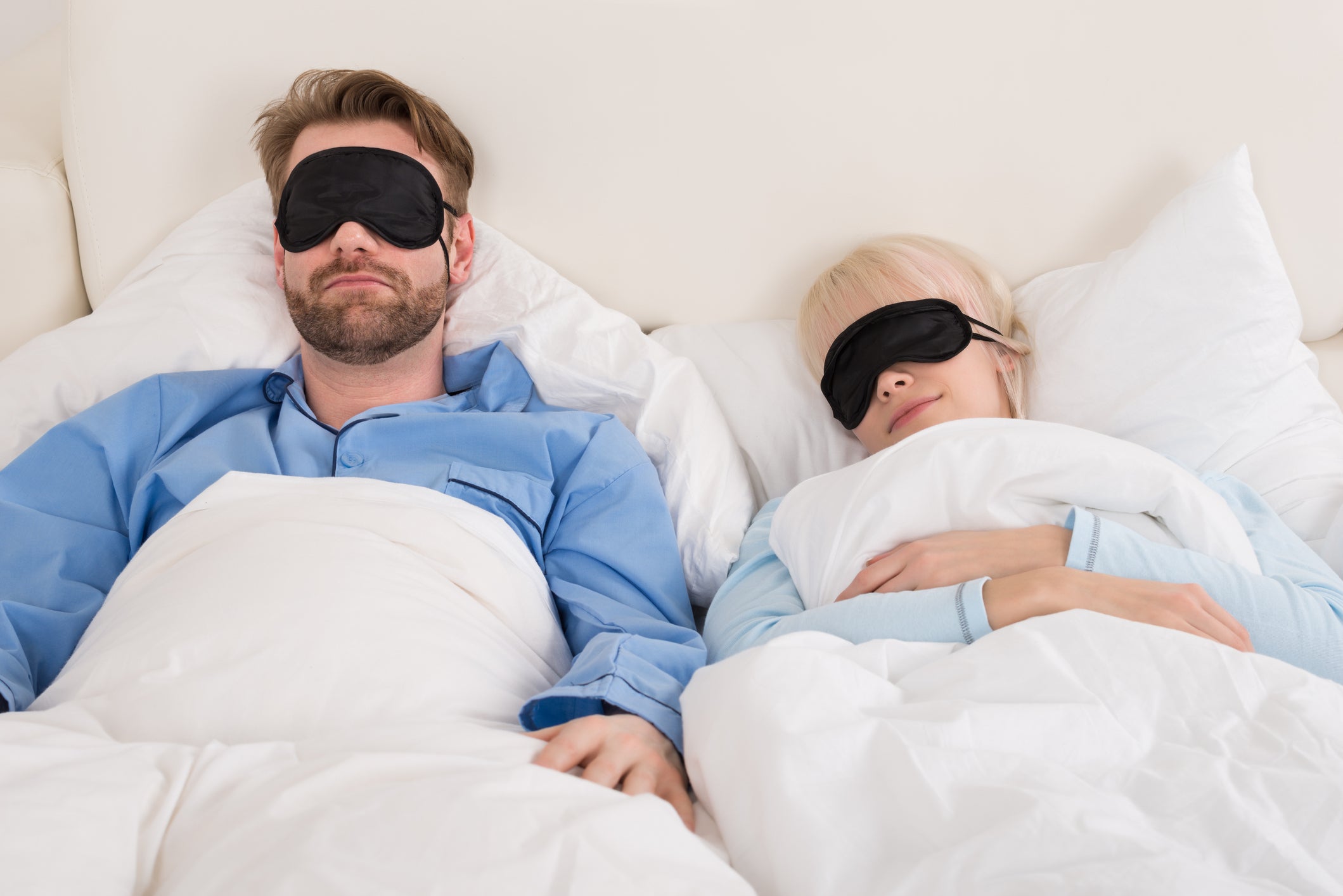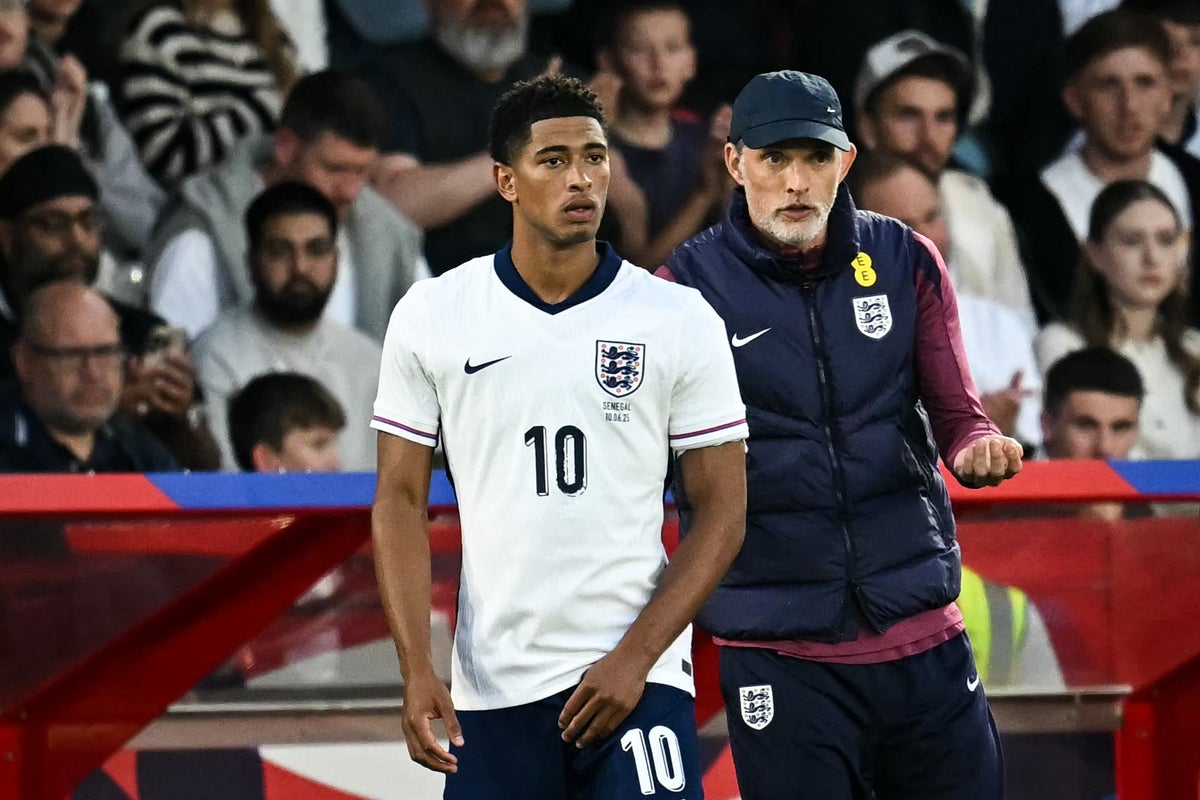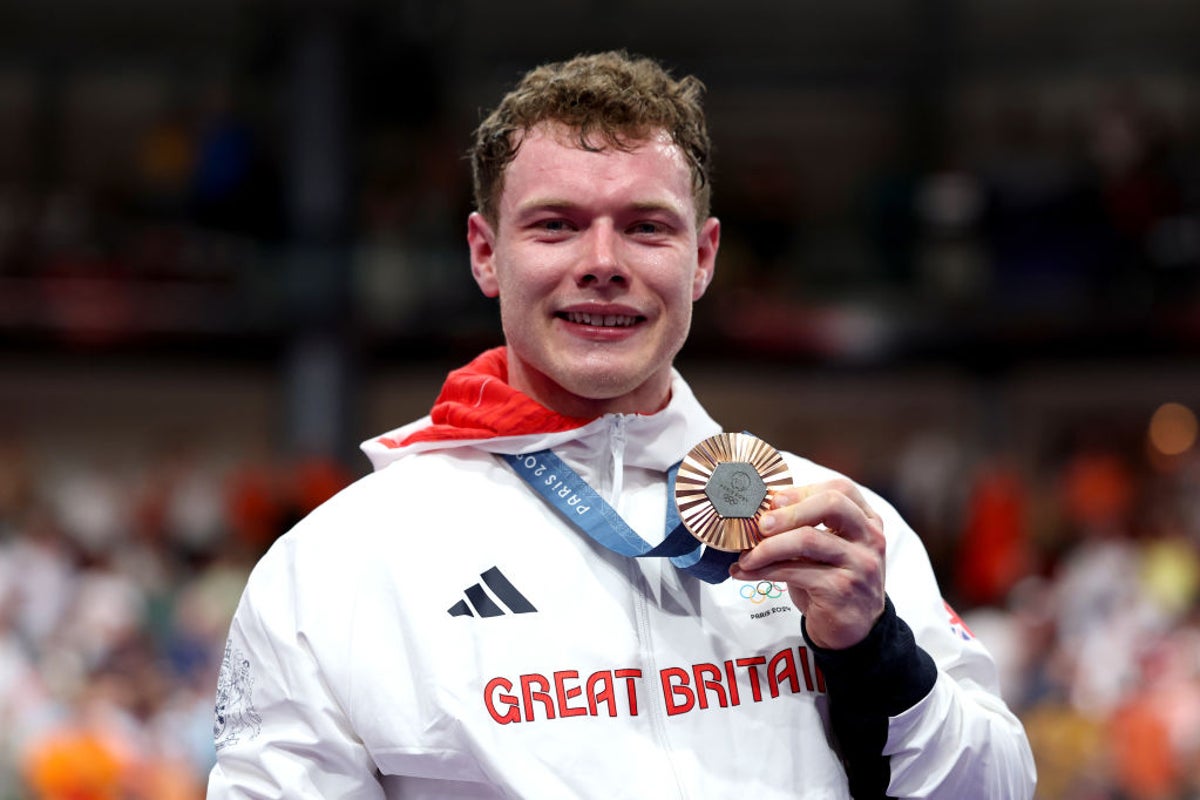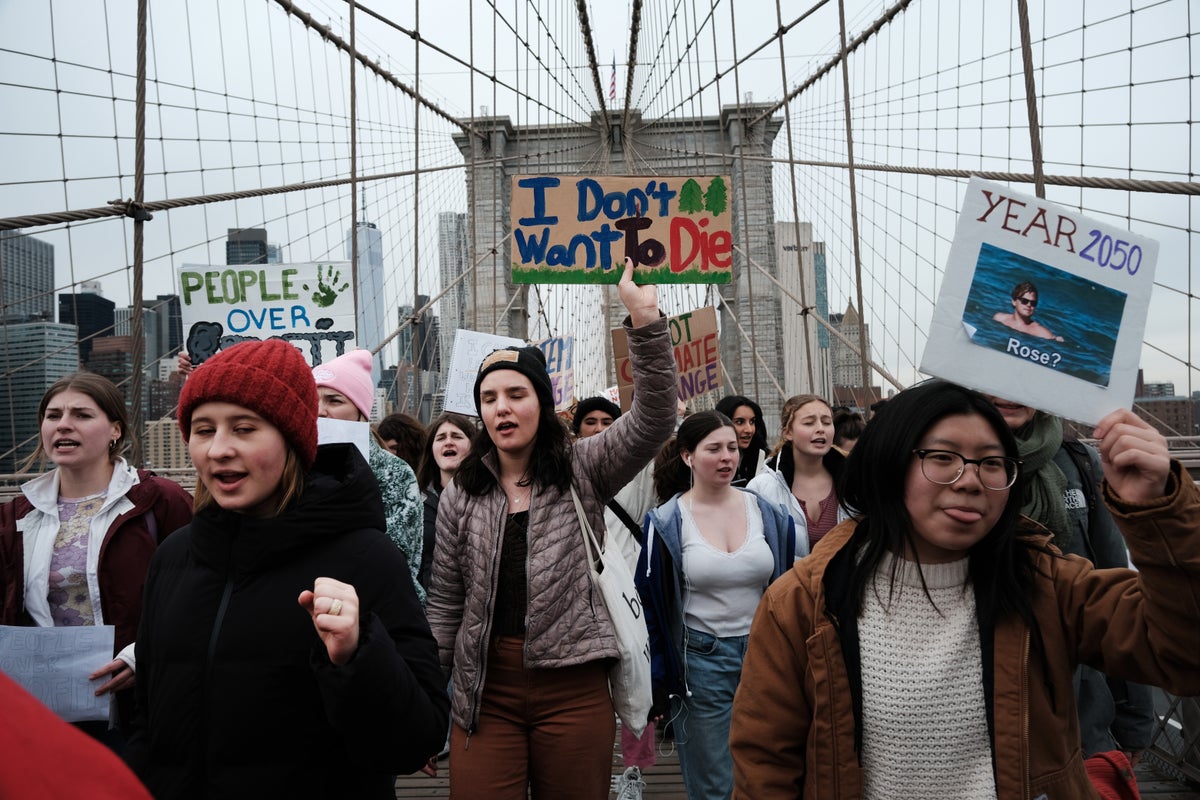Last week, I told a table of friends that I’d once brought an eye mask to a date’s house. We were exchanging embarrassing anecdotes from the front lines of the dating scene, and I presumed my confession would be met with a few laughs at my own high-maintenance expense. “Oh, babe, I whip mine out on the first date,” one replied, utterly nonplussed. Another admitted to meditating beside a recent Hinge match before bed, and one even said she would wait for dates to fall asleep before applying a noise-cancelling headband.
Sleep paraphernalia is big business. I know this because I’m one of its biggest customers: in addition to the eye mask (silk, of course, so as not to irritate my skin), I use earplugs (silicone), pillow spray (lavender), and a small pulsating pebble that sits on my chest to calm my nervous system. And that’s on a normal night. On a special occasion, like, say, a Sunday evening, I might incorporate a hair mask and possibly an overnight facial peel too. Did I also mention the addition of sleepy teas and magnesium-infused hot chocolates?
In the past, I’ve also sought the help of mild medication: herbal remedies, melatonin and, in desperate times, Nytol. There have even been occasions when I’ve looked forward to getting ill so that I can take one of those night-time Lemsip tablets. I know, I know. And the irony is that I don’t even struggle with my sleep that much; at least, nowhere near as much as some of my friends. But I do know that I need it, possibly more than most, and that an ex once described me as “always tired”. So an obsession was born.
The regime is overwhelming, as is the level of equipment. And yet, the more I introduce – because the products available are ever-increasing – the more dependent I become on it all. I know I’m not the only one. Almost all of my friends are eye mask-wearers, and many use earplugs or sleep with noise-cancelling headphones (yes, even the giant, over-the-head kind) to block out the sound of rowdy housemates. Obviously, this isn’t ideal when it comes to dating; there’s nothing like discreetly squishing pieces of silicone into your ears to kill the mood. But as we move into our thirties, and sleep becomes an increasingly precious and desperately sought-after commodity, it seems like we’re all happy to compromise coolness for getting a good night’s kip.
All this is before I’ve even tapped into the rising sleep tech market, which is booming, by the way. Strangely, I draw the line at tracking my hours. For some reason, it feels a little too dystopian to know exactly when I’m enjoying REM sleep versus snooze-lite, like I’m in competition with myself every time I rest my head on the pillow – will tonight’s version of myself beat last night’s? Who will earn more points? And what is my prize? None of that interests me; I’d rather just sleep. But a lot of people say otherwise, with research claiming that as many as one in four of us use sleep trackers despite the evidence of their accuracy being somewhat sketchy.

Of course, it makes sense as to why this sector is enjoying such a golden era. Consider how much of your day is spent staring at a screen. According to research published by the Institute of Practitioners in Advertising in June, the UK average is somewhere around 7.5 hours, and most of that is spent looking at our phones. That’s a lot of stimulation for our brains by way of likes, read receipts and DM slides. We’re almost always online in some form or another: is it any wonder we’ve forgotten how to live offline? And surely no activity is more offline than sleeping, although who knows how long that will remain the case. I can totally imagine someone in Silicon Valley launching some sort of AI sleep headset that sends us all into a virtual dream world whenever we close our eyes.
It goes without saying that a good night’s sleep is vital, both for our mental and physical health. Ideally, we want to be aiming for at least eight hours, though many of us settle for less (myself included). It seems that only half of us are actually satisfied with our sleep quality, according to analysis conducted by Mintel, the consumer insights firm, so perhaps it’s not surprising that the market is expanding. But surely we have to draw the line somewhere. A quick google of “sleep aids” reveals an endless list of products, from white-noise headphones that double as eye masks, and dissolving sleep strips you can put on your tongue, to sci-fi headsets that wrap around your neck and anti-snoring devices that look like something out of a horror film. It’s time-consuming. It’s addictive. It’s expensive. Is it actually helping us sleep any better?
“Something like an eye mask or earplugs could offer a very practical and tangible solution to sleep barriers such as light and noise,” says Charlie Morley, a sleep researcher and author of Dreams of Awakening: Use Lucid Dreaming to Rewire Your Brain While You Sleep. “But generally, sleep hygiene is a bit like dental hygiene – it can certainly help prevent problems from occurring, but once you have a problem, something more fundamental is required.”
In other words, if you’re struggling to sleep, adding a few bells and whistles to your night-time routine will only get you so far.
“We must focus on changing the internal environment of our body rather than simply the external environment of our bedroom if we want a long-term solution to sleeplessness,” says Morley, who advocates good sleep via mindfulness exercises, such as breathwork and keeping what he calls a “nocturnal journal” to keep track of how you’re sleeping. “We can be using all the blue‑light-filtering technology in the world, but unless we filter out the biological stressors that are preventing sleep from occurring, we may well be stuck staring at the ceiling till dawn.”
Still, while I’ll sign up for every night-time yoga class going, and happily indulge in pre-bedtime bubble bath rituals to calm my mind the old-fashioned way, I can’t see myself giving up my eyemask or earplugs any time soon. Old habits die hard – and this one feels more alive than ever.

.jpeg)




















.jpeg)














 English (US) ·
English (US) ·